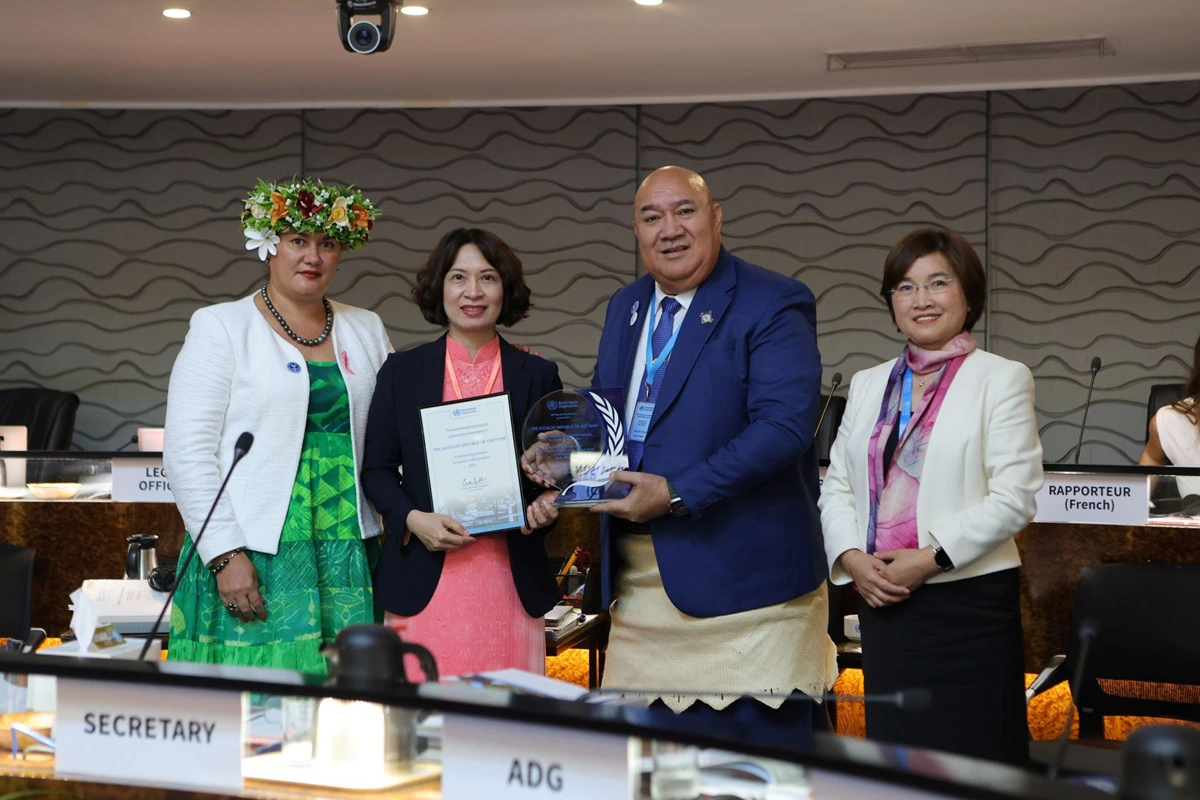The World Health Organization (WHO) honored Vietnam for successfully eliminating trachoma, the leading infectious cause of blindness globally, at the 75th session of the WHO Regional Committee for the Western Pacific, which opened in the Philippines on Monday.
Over the past seven decades, Vietnam has worked tirelessly to combat trachoma, treating hundreds of thousands of people and implementing rigorous control measures, according to WHO.
These efforts were significantly strengthened with the implementation of WHO’s SAFE strategy, which stands for surgery, antibiotics, facial cleanliness, and environmental improvement.
Surveys in the past indicated that trachoma was a public health problem in four provinces in Vietnam.
Thirty years ago, 1.7 percent of the people living in these high-risk provinces required surgery to prevent blindness from trachoma.
However, the proportion of adults with the blinding form of the disease had fallen below 0.2 percent by 2023, which is the threshold required for WHO validation of elimination of trachoma as a public health problem.
Dr. Tedros Adhanom Ghebreyesus, WHO director-general, said Vietnam's elimination of trachoma as a public health problem is a monumental achievement for the country and for the global fight against the disease.
“This milestone is a testament to the unwavering dedication of Vietnam’s health workers, including many working at community level," Tedros said.
"It underscores the power of collective action, innovative thinking, and a shared commitment to a healthier future for all.
“I commend Vietnam for its dedication and success in safeguarding the vision of millions.”
According to Dr. Saia Ma'u Piukala, the elimination of trachoma in Vietnam demonstrates the commitment of the government, health workers, and communities across the country.
Dr. Piukala noted that Vietnam's success is a prime example of how targeted interventions, strong partnerships, and persistent efforts can lead to significant improvements in public health.
Vietnamese Deputy Minister of Health Nguyen Thi Lien Huong underlined the country's pride in achieving the elimination of trachoma, marking a key milestone for the nation.
The combined efforts of many agencies and communities, with the support of WHO and partner organizations, have saved thousands of people from lifelong blindness and economic disadvantage.
Children can now grow up safe from this painful and potentially blinding disease, the Vietnamese official noted.
She added that this is a wonderful achievement for Vietnamese people, which will pay dividends for decades to come.
Huong also expressed her gratitude to all international partners who contributed great support to trachoma eradication in Vietnam.
Trachoma is a preventable disease of the eye caused by Chlamydia trachomatis bacteria.
The disease is spread by flies and people can also become infected through direct contact with discharge from the eyes or nose of an ill person.
With repeated infections, the eyelashes may be drawn in so that they rub on the surface of the eye, causing pain and damaging the cornea.
Some affected individuals must undergo surgery to prevent eventual blindness.
Like us on Facebook or follow us on Twitter to get the latest news about Vietnam!


















































